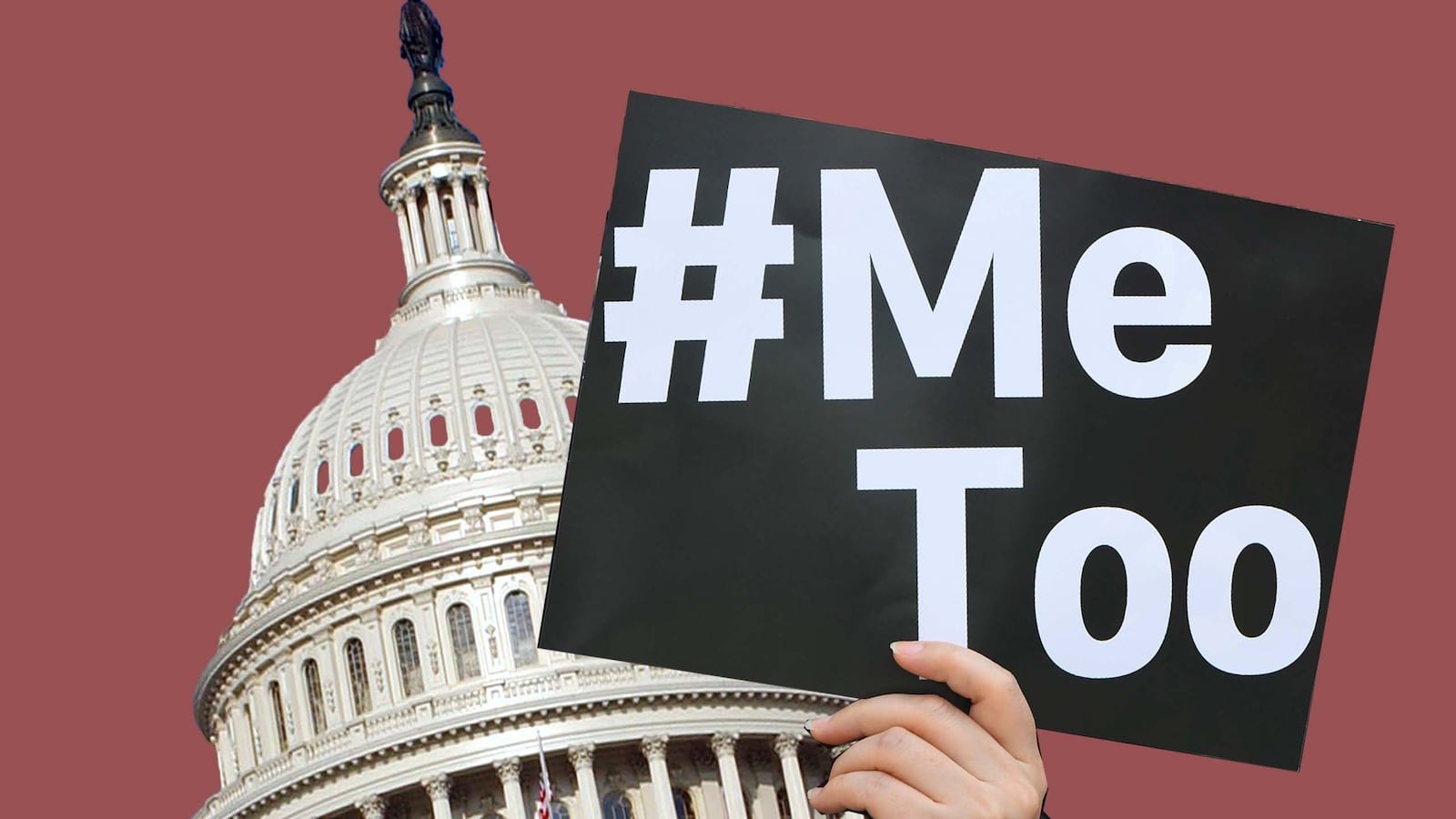It’s a familiar tale, though we still hope it will end differently.
Headlines across the country revealed pernicious and persistent violations of the dignity and civil rights of an entire segment of the population in the workplace.
Lawmakers and aides immediately spoke up, revealing that those violations had taken place in the congressional workplace as well.
Members on both sides of the aisle agreed to update legislation that, while significant a quarter century ago, remains outdated and imperfect at best.
They produced a bipartisan bill that would strengthen the institution of Congress by better protecting the rights of those who work there.
And then…. Nothing.
The bill—Congress’s legislative response to sexual harassment and assault allegations within its own workplace—will die if the House and Senate do not come to an agreement in the next week. At issue is how to strengthen the Office of Compliance, the small office established by the Congressional Accountability Act of 1995 to adjudicate rights violations in the congressional workplace.
That’s right: Despite the public parade of staff and members of Congress whose rights have been violated, lawmakers are preparing to leave town for the holidays without passing legislation that would protect both workers and the institution, and address the proven inability of the Office of Compliance to adjudicate their complaints effectively. Should they do so, they will not only damage the very institution of Congress but send a chilling message about the inability of our elected leaders to deal with pressing civil and workplace rights.
The 115th Congress should not end this way.
Republican and Democratic members of Congress in the House—including Reps. Barbara Comstock (R-CA), Susan Brooks (R-IN), Jackie Speier (D-CA), and Gregg Harper (R-MS)—have worked diligently to strengthen a system that, while revolutionary in its day, was still inadequate and is long outdated. The House-passed bill, in contrast to its Senate counterpart, includes a broader definition of harassment and how members of Congress would be held personally liable, requiring lawmakers to pay out of pocket for sexual harassment and discrimination settlements. It also empowers a newly created Office of Employee Advocacy to oversee the settlements process, rather than lawmakers overseeing their peers.
Some lay the case for a lack of reform at the feet of Senate leadership, because their bill is considered weaker with respect to how settlements are paid and the role the ethics committees plays in complaints and restitution. But playing the blame game does not get legislation passed.
The 115th Congress should not adjourn without overhauling harassment practices in the legislative branch. If it does, every member of Congress—in the House and Senate, and on both sides of the aisle—will bear some measure of responsibility for the failure. Their legacies will likewise be tarnished.
As two women who worked to help pass the original, albeit imperfect, legislation nearly 23 years ago, we know Congress benefits when it is forced to live by the codes and legislation from which it has previously shielded itself. Back in the 1990s, there was no parental leave policy, no civil rights or equal pay protections, no disability accommodations, and no workplace safety provisions for lawmakers and their staffs. When the Republican majority was elected in November 1994—and the principles it ran on, the Contract with America, had to be written into legislative language—we had eight weeks to turn talking points into a legal process members could vote for. There was bipartisan, bicameral opposition to what we produced. The result was imperfect, but it was a first step, and it built trust in the institution of Congress.
Now it’s time to take the next step. Members of the 115th Congress have done important work to try and update its system to protect the rights of those who work beneath it and ensure Congress abides by the same rules as the rest of the country. The result is legislation agreed to by both Republicans and Democrats, in the House and in the Senate. They are 80 percent of the way there.
The two chambers have had more than six months to hash out their differences. Allowing this Congress to end without passage will increase the likelihood of the issue becoming partisan with no solution when the new Congress convenes in January. And that will only hurt further the institution that all sides claim to want to protect.






